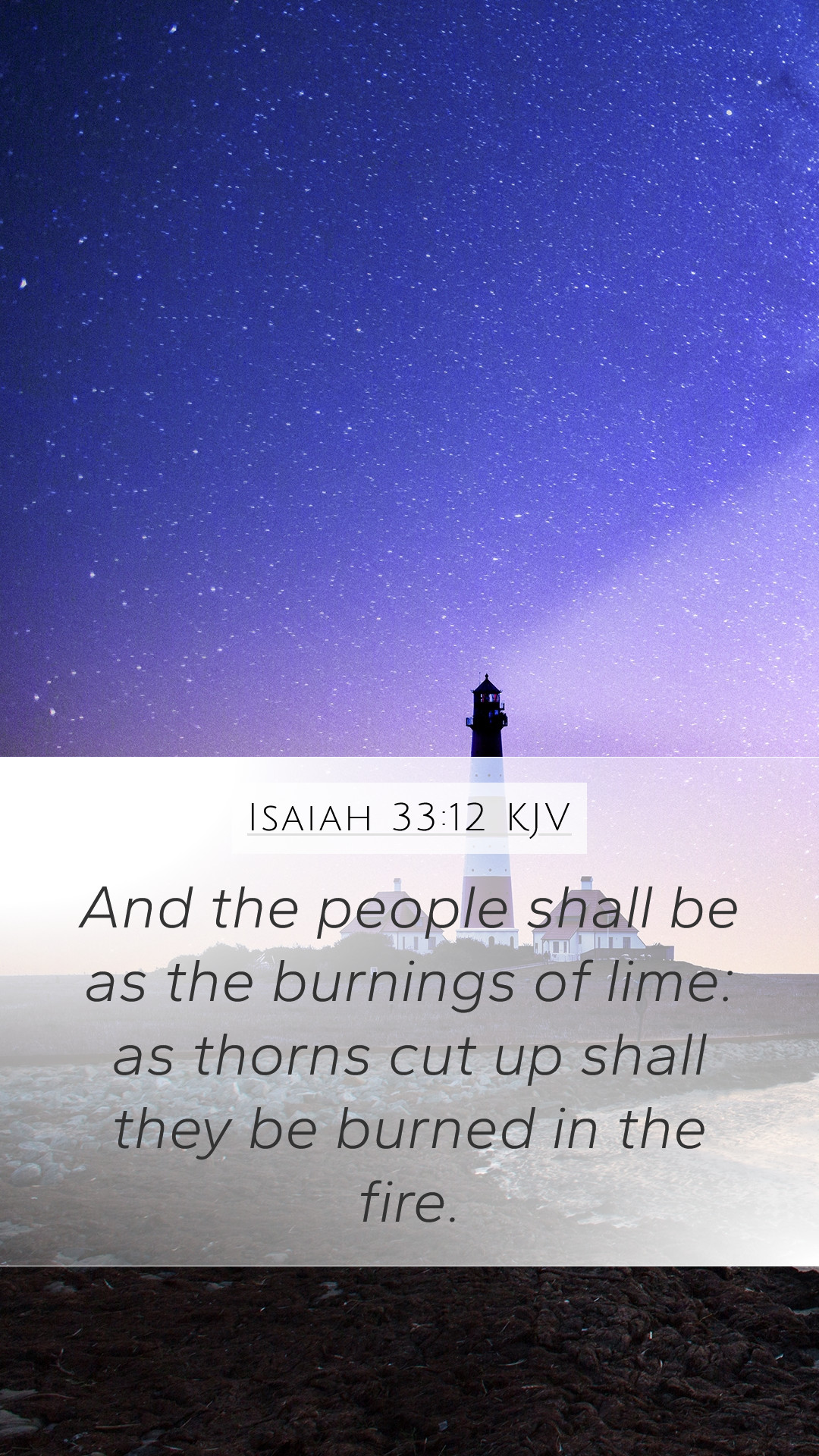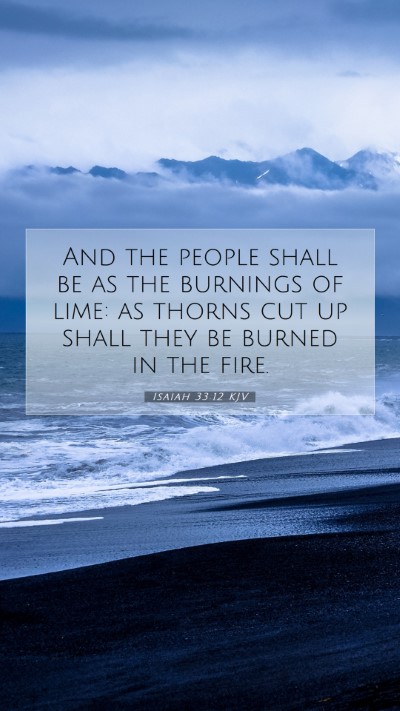Understanding Isaiah 33:12
Isaiah 33:12 reads: "And the people shall be like the burnings of lime: as thorns cut up shall they be burned in the fire." This verse provides a vivid depiction of divine judgment against those who oppose God and His people.
Overview of the Verse
This passage illustrates the fate of those who are wicked and refuse to adhere to the ways of the Lord. The use of fire as a metaphor highlights the destructive consequences of their actions. This commentary will delve into the implications of this verse through insights derived from various public domain commentaries.
Insights from Commentaries
-
Matthew Henry's Commentary:
Henry emphasizes the certainty of God's judgment, suggesting that those who are likened to "the burnings of lime" represent individuals whose actions will lead to their own destruction. He points out that just as lime has a burning effect, so do the ungodly have a corrosive influence on society. This verse serves as a warning of impending judgment and the ultimate fate awaiting those who defy divine laws.
-
Albert Barnes' Notes:
Barnes elaborates on the consequences of sin, mentioning that the imagery of "thorns cut up" signifies the futility of wickedness. Just as thorns are consumed by fire, so too will the wicked perish. This interpretation encourages readers to reflect on the temporary nature of earthly power and the everlasting nature of God's truth.
-
Adam Clarke's Commentary:
Clarke offers a linguistic analysis, noting that the verse uses intense imagery to portray the inevitability of judgment against the wicked. He stresses the significance of the metaphorical language, which is potent in conveying the seriousness of divine retribution. His interpretation serves to highlight God's justice in his dealings with humanity.
Historical Context
The context of this verse is vital for understanding its meaning. Isaiah prophesied during a time of crisis in Judah, addressing the moral and spiritual decline of the people. His warnings served a dual purpose: to call the nation to repentance and to assure them of God's ultimate justice. This passage reflects the themes of redemption and judgment prevalent in the Book of Isaiah.
Application of the Verse
For modern readers, Isaiah 33:12 underscores the reality of moral responsibility. The stark contrasts between the righteous and the wicked encourage believers to pursue integrity and adhere to divine teachings. This verse can be reflected upon in various settings such as:
- Bible study groups
- Online Bible study platforms
- Bible study guides focusing on prophecy and judgment
Related Bible Cross References
- Matthew 3:10 - "And now also the axe is laid unto the root of the trees: therefore every tree which bringeth not forth good fruit is hewn down, and cast into the fire."
- Psalm 1:4-5 - "The ungodly are not so: but are like the chaff which the wind driveth away. Therefore the ungodly shall not stand in the judgment."
- 2 Thessalonians 1:7-9 - “...the Lord Jesus shall be revealed from heaven with his mighty angels, in flaming fire taking vengeance on them that know not God...”
Conclusion
Isaiah 33:12 serves as a compelling reminder of the consequences of turning away from God. Through the lens of various commentaries, we gain a deeper understanding of its meaning, interpretations, and implications for our lives as believers. Studying such verses encourages a thoughtful engagement with Scripture, promoting both individual reflection and group discussions. This enhances our Bible study insights and fosters a deeper commitment to understanding the significance of God's Word in our daily lives.


